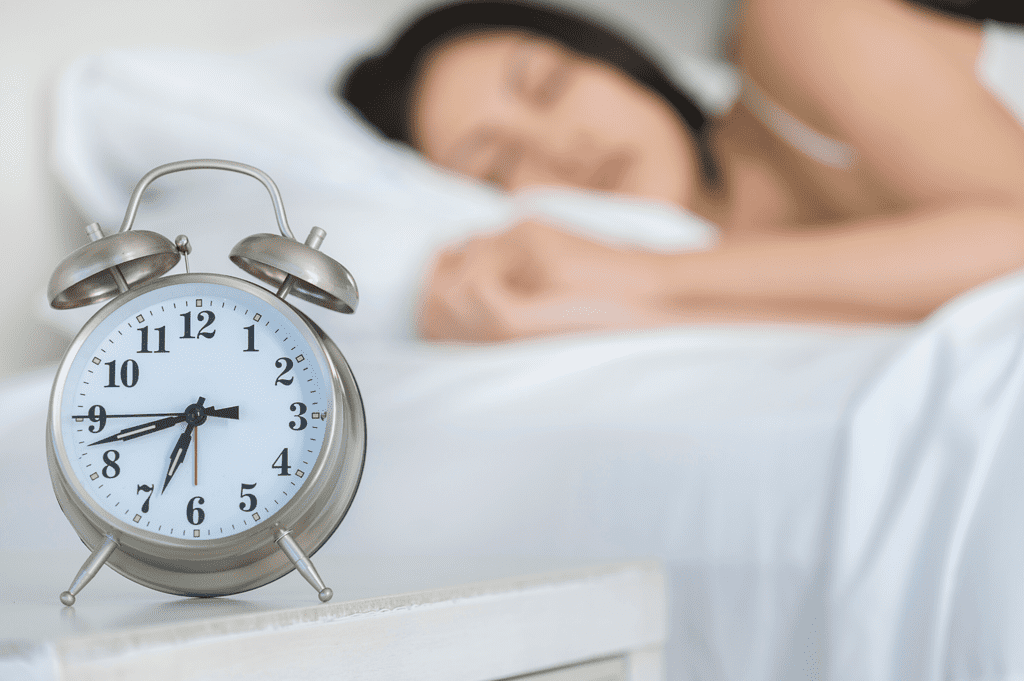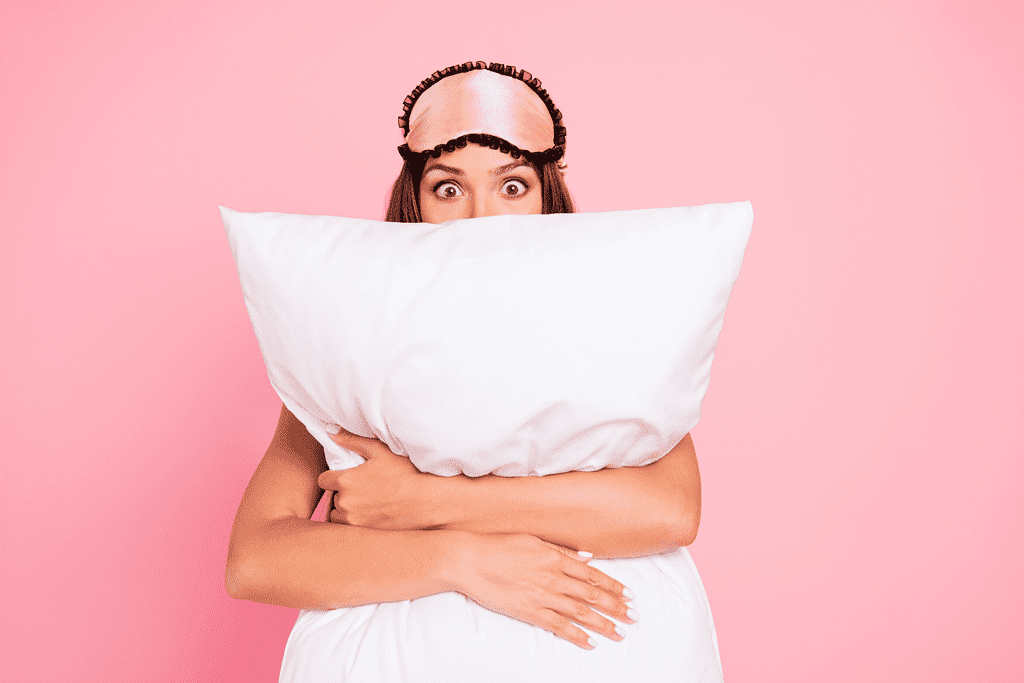I have suffered from chronic insomnia for many years. Unfortunately, I have trouble falling asleep and staying asleep. I first became aware of the effects of poor sleep and weight gain as well as weight loss several years ago. However, now I have finally decided to take action to help my weight loss journey. So here is everything you need to know about sleep and weight loss.
I am probably more of an expert on lack of sleep or poor sleep and weight gain. For years I survived on approximately five hours of sleep on weekdays. But around 3:00 pm I needed a pick-me-up. I found energy in chips, chocolate bar, or quite frankly, any other type to junk food.
When I had trouble falling asleep, another one of my crazy habits was to eat in the wee hours of the morning. And again, I was eating junk food.
My insomnia directly added about 400-500 calories a day! And probably about 40 – 50 pounds a year! Needless to say, sleep is one of the factors of my weight gain, difficulty maintaining a healthy weight and losing weight.
The research supports my experience. When you are sleep deprived your tired brain craves junk food and your tired brain has little control to resist.
My insomnia also made it very difficult to exercise because quite simply I was too tired. Exercising before work was near impossible since I could barely get myself awake in time to go to work. Then as the day progressed, I became more and more fatigued thus there was no energy to exercise after work.
When I became my own diet coach, I knew that I had to tackle sleep in addition to diet and exercise. I did the research and put together everything you need to know about sleep and weight loss.
A good night’s sleep is important for many different reasons, including weight gain and weight loss. There are three important hormones that are affected by a lack of sleep and could lead to weight gain and affect weight loss. They are ghrelin, leptin, and insulin.

Gherlin
Ghrelin is sometimes called the hunger hormone. This is the hormone, released in the stomach, that tells your brain that you are hungry. This hormone increases your appetite, makes you want to eat, and store fat.
You know those times when you are so hungry that you can eat a whole cow? Probably your ghrelin levels are high. Conversely, your ghrelin levels are low when you are not hungry.
Research has shown that poor sleep causes your ghrelin levels to increase which of course causes hunger and weight gain. The first thing you need to know about sleep and weight loss is that getting more sleep will help you to feel less hungry and lose weight.
There are a couple of other ways to keep your ghrelin levels low: eating more protein and gaining more muscle.
Leptin
Leptin is the second hormone that is affected by sleep. It is also sometimes called the starvation or hunger hormone. Leptin, released from fat cells, tells your brain that it is full and suppresses hunger. Leptin also affects how you burn calories. When you are full you burn calories normally, but when your leptin levels are low you burn calories more slowly.
Many studies have found that poor sleep lowers our leptin levels and function. The second thing you need to know about sleep and weight loss is that getting more sleep will help you to feel full and avoid hunger. Also, you avoid lowering your metabolism.
If you wonder how else can you control your leptin levels, you can try eating more fish, fiber, exercise, and avoiding foods and drinks high in sugar.
You may have seen leptin supplements, but don’t waste your money since there is little research to show that these supplements are effective.

Insulin
Insulin is another hormone that is affected by sleep. Insulin moves sugar through the bloodstream to be used as energy. But when we become insulin resistant we store the sugar which eventually causes our bodies to make more insulin, we get hungrier and store more calories as fat.
Insulin resistance is commonly known to cause diabetes. However, some studies have found that just a few nights of poor sleep can cause insulin resistance and weight gain.
Getting a good night’s sleep will help to keep your insulin level low and this is the third thing you need to know about sleep and weight loss.
There are a number of foods to avoid to keep your insulin level low. They include:
- Sweetened drinks
- Alcohol
- Processed foods
- Sugary sweets
- Desserts
- Chocolate
- Refined grains
- Flour based foods
- Fried foods
- Foods high in saturated fat
Low insulin foods include:
- Salmon
- Sardines
- Herring
- Lean meats
- Broccoli
- Dark leafy vegetables
- Peppers
- Tomatoes
- Oranges
- Lemon
- Lime
- Lentils
- Oats
- Quinoa
- Barley
- Berries
- Sweet potato
- Yogurt (unsweetened)
- Tea
Also read the Top 5 Foods Permanent for Weight Loss
Sleep and Weight Loss
The bottom line is that there is strong evidence that poor sleep can cause weight gain and likewise getting a good night’s rest will help you lose weight and maintain your weight. For me, this information is a huge motivator to develop and maintain good sleep habits.
If poor sleep contributes about 40 – 50 pounds of my weight gain. What can I expect to lose when my sleep improves? The answer is still diet and exercise, but improving your sleep will make it easier to avoid weight gain, and overtime to lose weight, according to the experts.
Also read Best Exercises for Obese Women for Weight Loss
Have you experienced any changes in your weight as a result of poor sleep? I would love to hear from you!




20 comments
Those are great knowledge that you shared! Thank you so much
Thank you very much!
Good post. My mom and sister are both diabetic and I am border line. I am trying to avoid sugary foods mostly. (I still need a cupcake every now and then) 🙂 Sleep is a must!
Hi Gina, We all need a cupcake every now and then!
lol
Oh wow, I’ve never heard of Leptin before! For good or bad, I do eat a LOT in the night. I find it helps me sleep or maybe it’s just because I’m a night owl.
Hi Nadalie, We are all very different, as a fellow night owl I would say that if your nighttime eating doesn’t negatively affect then there is no need to change.
This was super interesting , thank you!
Thank you very much!
This is so incredibly interesting!! I too suffer from insomnia (yay anxiety!), and have noticed that the amount of sleep I get affects my weight big time. I didn’t know why though (aside from all that late night snacking). I’m glad I know the scientific reasons behind it. Thank you so much for this invaluable info!
Hi Carolyn, I let you know as soon as I figure out a way to make late-night snacks calorie-free. Lol
This is so interesting especially because I’m trying to lose weight, I’m a night owl though. It sounds like it might be a problem
Hi Mimi, I hope your sleep habits do not affect your weight loss goals. Good luck!
I do believe this to be true! I’ve put on weight and I’ve suffered from insomnia for the past 5 years.
Hi Marta, As a fellow insomniac I share your pain. Let’s hope we will both be able to finally sleep better soon! And of course, avoid weight gain!
These are great tips! I dont have a problem getting to sleep or staying asleep but I dont always have restful sleep. This pandemic had me all thrown off but I just told myself I was getting myself together because Im over not sleeping well!
Hi Carissa, the pandemic and lockdown have been hard on so many of us. It’s great that you were able to that not have these crazy times affect your sleep.
[…] Over the years as the weight piled on, I increasingly kept my husband awake with my snoring. Then he would nudge and poke me to stop. For the last couple of years, he suspected that I was suffering from sleep apnea. I was never tested so I don’t know if he was right.But what I do know is that I don’t snore anymore! Now both my husband and I sleep better! I didn’t need any special gadget, just weight loss to snore less and sleep better.In fact, according to the Mayo Clinic, your weight is one of the factors that can cause snoring, and conversely losing weight can help to stop snoring. I can certainly attest to this fact.If sleep is an issue for you, check out my blog post, Everything You Need to Know About Sleep and Weight loss. […]
[…] Also read Everything you Need to Know About Sleep and Weight Loss […]
I’m glad you looked into the sleeping problem and came up with a simple explanation. The difficulty comes when I try to put theory in practice. Especially since I am addicted to sugar. I normally start having a perfectly healthy lunch, then I ruin it with ice cream!
I know exactly how you feel! But at least you had a healthy lunch. Sugar is the worst for so many of us.